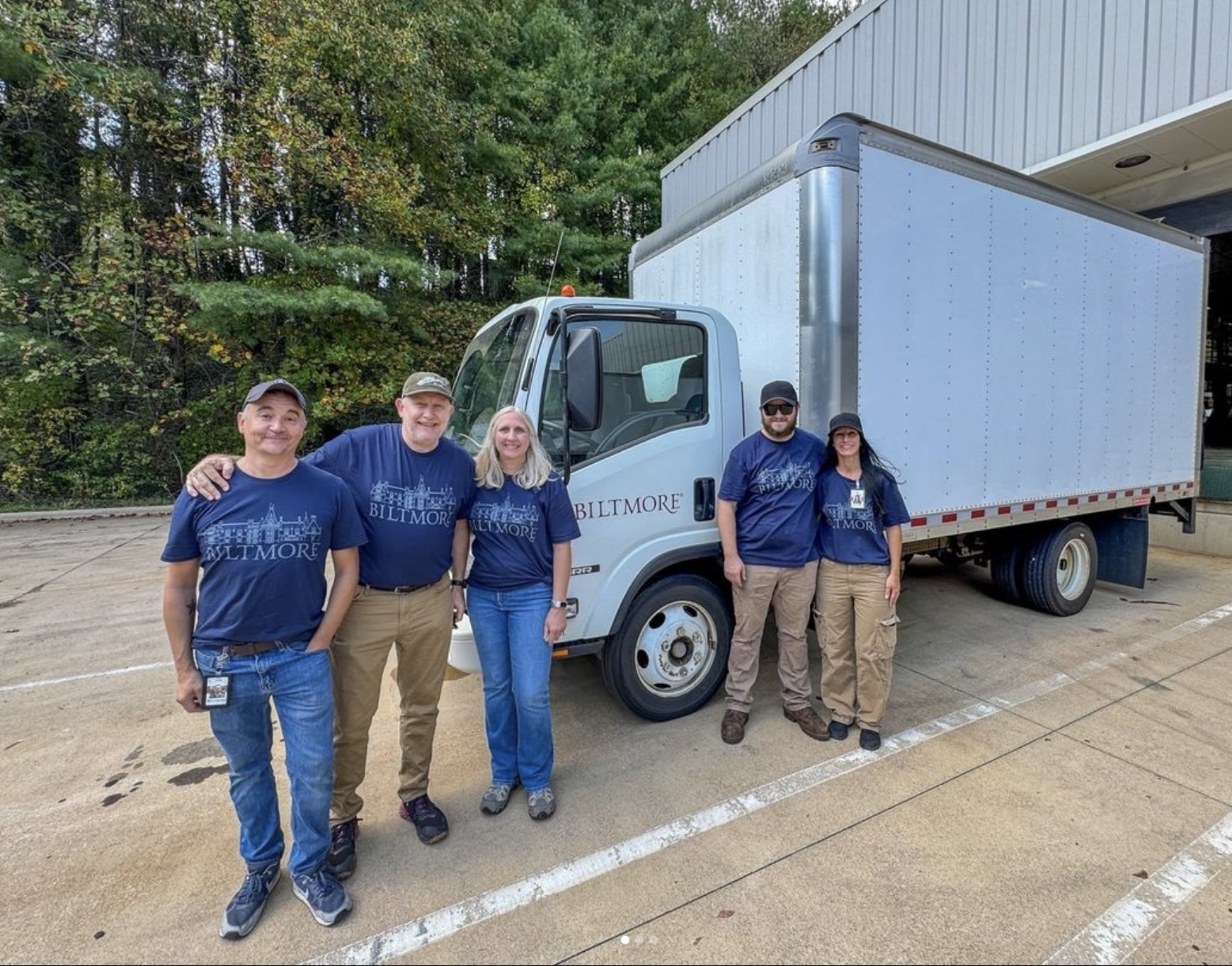Companies’ Role in Philanthropy, Especially Amid Natural Disasters

When natural disasters like Hurricane Helene strike, the devastation can be overwhelming. Communities face displacement, businesses suffer losses, and infrastructure can be crippled. In times like these, companies have a unique opportunity to step up, providing crucial resources and leadership in disaster response and recovery efforts.
An inspiring example is The Biltmore Estate’ response to Hurricane Helene in Asheville, NC, which demonstrated the potential of corporate philanthropy to support communities in crisis. Beyond immediate relief, corporate involvement helps rebuild stronger, more resilient communities. Whether it’s through direct financial contributions, mobilizing employees for volunteer efforts, or offering vital resources and expertise, companies that respond swiftly to natural disasters showcase their commitment to social responsibility while making a tangible impact. This form of corporate social responsibility (CSR) is not only about helping during emergencies but also about building sustainable strategies that strengthen communities over time.
The Evolving Role of Companies in Disaster Response
Historically, companies have played a crucial role as place-based funders, responding to the needs of the communities where they operate. In an era where businesses are increasingly expected to address broader social and environmental challenges, their role in philanthropy, especially during natural disasters, has become more significant. Corporate philanthropy is the cornerstone of robust sustainability programs. In both crisis and calm, using a company’s influence to improve society requires strategic planning and a genuine desire to give back to the communities employees call home. Here are the main drivers behind CSR, especially in times of natural disaster:
1. Enhancing Corporate Reputation: Engaging in philanthropy enhances a company’s reputation by demonstrating its commitment to social responsibility. Investing in disaster relief, community development, healthcare, and environmental restoration fosters goodwill among consumers, investors, and stakeholders. A positive reputation, particularly in times of crisis, builds trust, drives customer loyalty, and provides a competitive edge. Importantly, employees want to work for companies that care about their communities. By actively contributing to disaster recovery, businesses gain admiration not only from consumers but from potential employees who value a company’s dedication to making a difference.
2. Fostering Employee Engagement: Philanthropy can play a crucial role in boosting employee morale and engagement. When employees see their company contributing positively to society, it instills a sense of pride and purpose. Many companies also encourage employee involvement in philanthropic activities through volunteer programs, matching gift initiatives and even nonprofit site visits. During a natural disaster, this engagement becomes even more powerful, as employees witness firsthand the difference their efforts can make. This not only enhances job satisfaction and retention but also helps in building a cohesive and motivated workforce.
3. Driving Social Impact for the Long Haul: Disasters often prompt a heightened focus on social and environmental challenges. Today’s consumers and investors are increasingly values-driven and expect companies to address issues such as climate change, poverty, and inequality. By engaging in philanthropic efforts during and after a disaster, companies align their missions with stakeholder values, fostering stronger relationships with consumers, employees, and socially conscious investors who prioritize Environmental, Social, and Governance (ESG) criteria in their investment decisions.
Philanthropy also offers an avenue for companies to contribute to long-term solutions. By supporting nonprofits, funding initiatives, and investing in sustainable practices, businesses can drive lasting change. This not only improves the quality of life in affected areas but creates a more stable environment for businesses to thrive.
4. Utilizing Data for Strategic Giving: Businesses are increasingly relying on data to guide all aspects of their operations, and philanthropy is no exception. Applying data-driven strategies to disaster philanthropy ensures that resources are directed where they are most needed and that corporate giving aligns with broader sustainability goals. By measuring the impact of their contributions, companies can optimize their efforts, ensuring that their disaster response is both meaningful and effective. Aligning corporate donations with initiatives like the UN’s 17 Sustainable Development Goals (SDGs) can further amplify a company’s impact. From investing in renewable energy solutions to funding sustainable agriculture programs, companies have the ability to drive systemic change that not only benefits disaster-stricken communities but contributes to global stability.
Building Resilience Through Corporate Philanthropy
Corporate philanthropy is most effective when it involves collaboration. Partnerships between businesses, governments, nonprofits, and other stakeholders can lead to innovative solutions to the complex challenges posed by natural disasters. By pooling resources and expertise, companies can have a greater impact than they could on their own, while also fostering a spirit of innovation that benefits their business operations.
Integrating philanthropy into corporate sustainability programs is not just an ethical decision—it’s a strategic necessity. It enhances a company’s reputation, deepens employee engagement, aligns with consumer and investor values, and drives long-term social and environmental sustainability. For businesses, this means contributing to a more stable and prosperous society, which ultimately benefits their bottom line.
Natural disasters like Hurricane Helene remind us that companies are in a unique position to lead recovery efforts and make communities stronger. While CSR programs aren’t driven solely by disaster, the ability of businesses to quickly mobilize resources is a powerful reminder of the critical role they play in society. Corporate philanthropy is not just about giving back—it’s about building resilient communities that are better equipped to face future challenges.
About Grant Philanthropic Advisors:
We’re an independent, Charleston-based firm helping clients to focus and maximize their philanthropy—in turn, strengthening the fabric of our communities. Founded in 2019, we help donors move from responsive patterns of giving by assisting clients to identify values and become more strategic in their philanthropy. Our goal is to help donors to become more effective as change-makers. Our team has a combined 100 years of experience working in the field of philanthropy.
We work with foundations (large and small staff teams), donor advised fund holders, multi generational families, individuals, philanthropy supporting organizations and corporations to design philanthropic strategies. We work with philanthropies that grant $1 million to $40 million annually. Our clients span the Southeast with a concentration in Charleston, Atlanta and Charlotte.